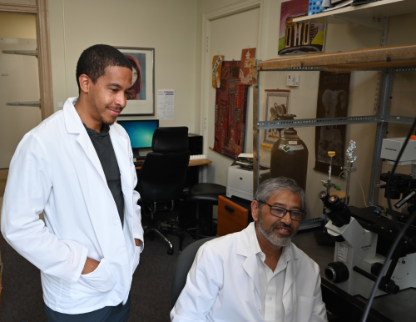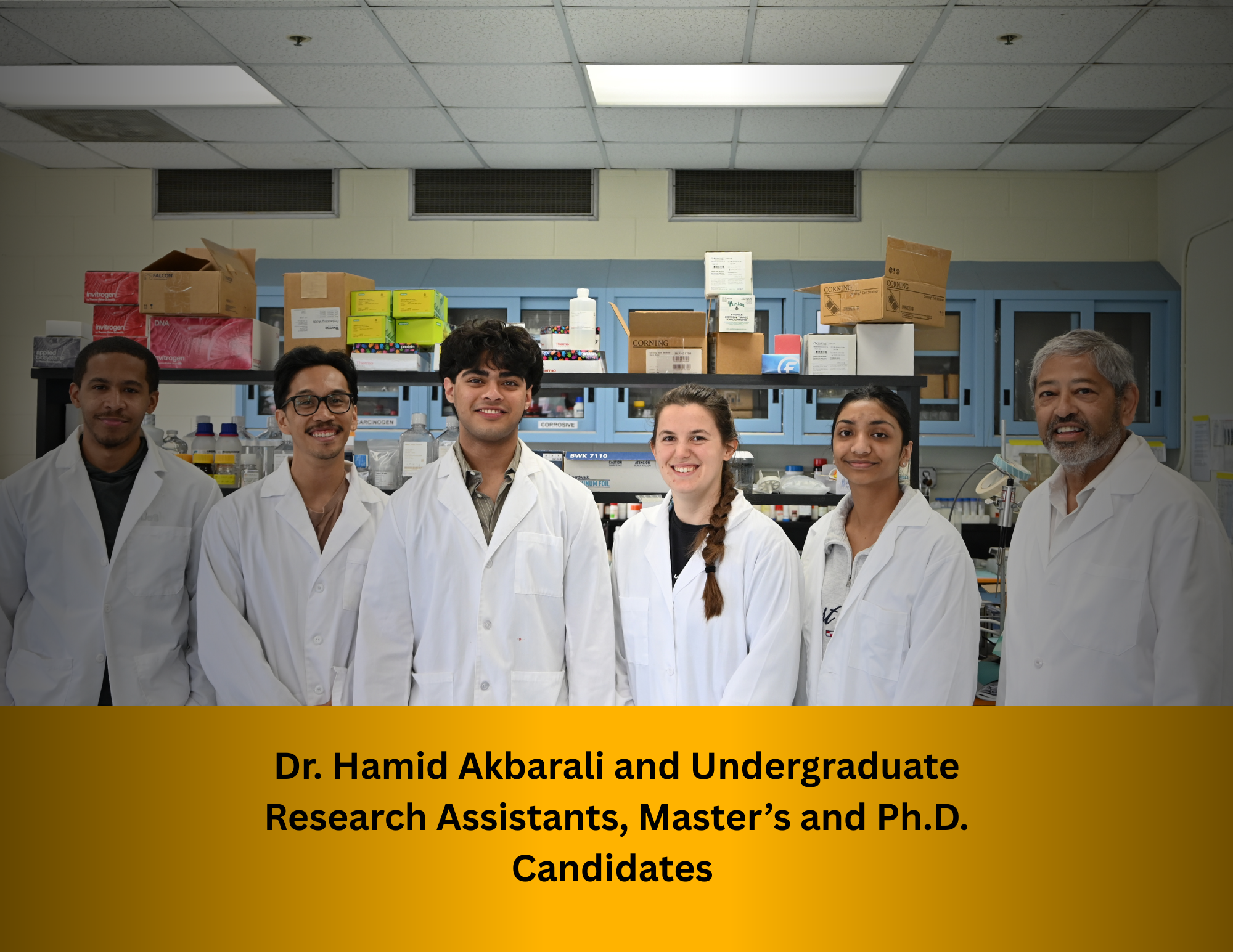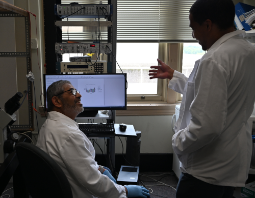Inaugural Faculty Mentoring Award 2025
Mentorship in graduate school is more than just advising, providing feedback, or supervision. Mentors act as guides for students navigating the complexities of academics, work, and life. These dynamic relationships extend beyond the classroom and laboratory, and often have a profound impact on a graduate student’s journey.
 To recognize faculty who have devoted their time to exceptional mentorship and relationship-building with graduate students, the VCU Graduate School is presenting its inaugural Graduate Faculty Mentoring Award this academic year. This award honors two faculty members who have gone above and beyond—not just as advisors, but as true mentors, guiding their students through highs and lows, triumphs and setbacks, and everything in-between.
To recognize faculty who have devoted their time to exceptional mentorship and relationship-building with graduate students, the VCU Graduate School is presenting its inaugural Graduate Faculty Mentoring Award this academic year. This award honors two faculty members who have gone above and beyond—not just as advisors, but as true mentors, guiding their students through highs and lows, triumphs and setbacks, and everything in-between.
One of the recipients is Dr. Hamid Akbarali—Harvey and Gladys Haag Professor in the Department of Pharmacology and Toxicology, and Program Director of the Initiative for Maximizing Student Development (IMSD) Ph.D. Program.
Dr. Akbarali’s students, from undergraduate research assistants to Master’s and Ph.D. candidates, describe him as someone who prioritizes making time for them. Who listens and sees them—fully. As scientists, yes, but also as people navigating a system that can be overwhelming at times.

When asked about what mentorship means to him, Dr. Akbarali shared, “I think mentoring really is . . . about recognizing that you're always learning, as a mentor or even as a mentee, you're always learning.” He added, “I’m learning from very young people. You know, [it has been] such a humbling [experience] and . . . a privilege for me to have mentored undergraduates, high school students, graduate students, and postdoctoral fellows and junior faculty.”
This interest in mentorship was not just sparked by one incident or one relationship for Dr. Akbarali, but rather, many different experiences and encounters. He said, “. . . having gone through many, many different students, coming from different backgrounds . . . and of different ages . . . has really been the key, I think for me. Perhaps one of the finest moments, if I could say that, is when I see students who were with me, you know, twenty years ago and are now very successful.”
 Asked about what advice he has for early career faculty who want to become better mentors, Dr. Akbarali shared two crucial qualities. “You have to recognize that you are always learning,” and “Secondly, I think you have to be open to listening . . . listening by words. Sometimes it's by action.” He also added, “We have a population where we need to recognize that people are different, very different people, neuro divergences . . . you know, people . . . come from different backgrounds, have different ideas. And so, being able to listen and being able to recognize that, I think is important.”
Asked about what advice he has for early career faculty who want to become better mentors, Dr. Akbarali shared two crucial qualities. “You have to recognize that you are always learning,” and “Secondly, I think you have to be open to listening . . . listening by words. Sometimes it's by action.” He also added, “We have a population where we need to recognize that people are different, very different people, neuro divergences . . . you know, people . . . come from different backgrounds, have different ideas. And so, being able to listen and being able to recognize that, I think is important.”
Dr. Hamid Akbarali’s journey is a reminder that mentorship isn't a one size fits all model. It's a practice rooted in care, connection, and the belief that every student belongs. If you're a grad student looking for mentorship, don't be afraid to reach out. And if you're in a position to offer guidance, remember that even the smallest gestures can have a lasting impact.